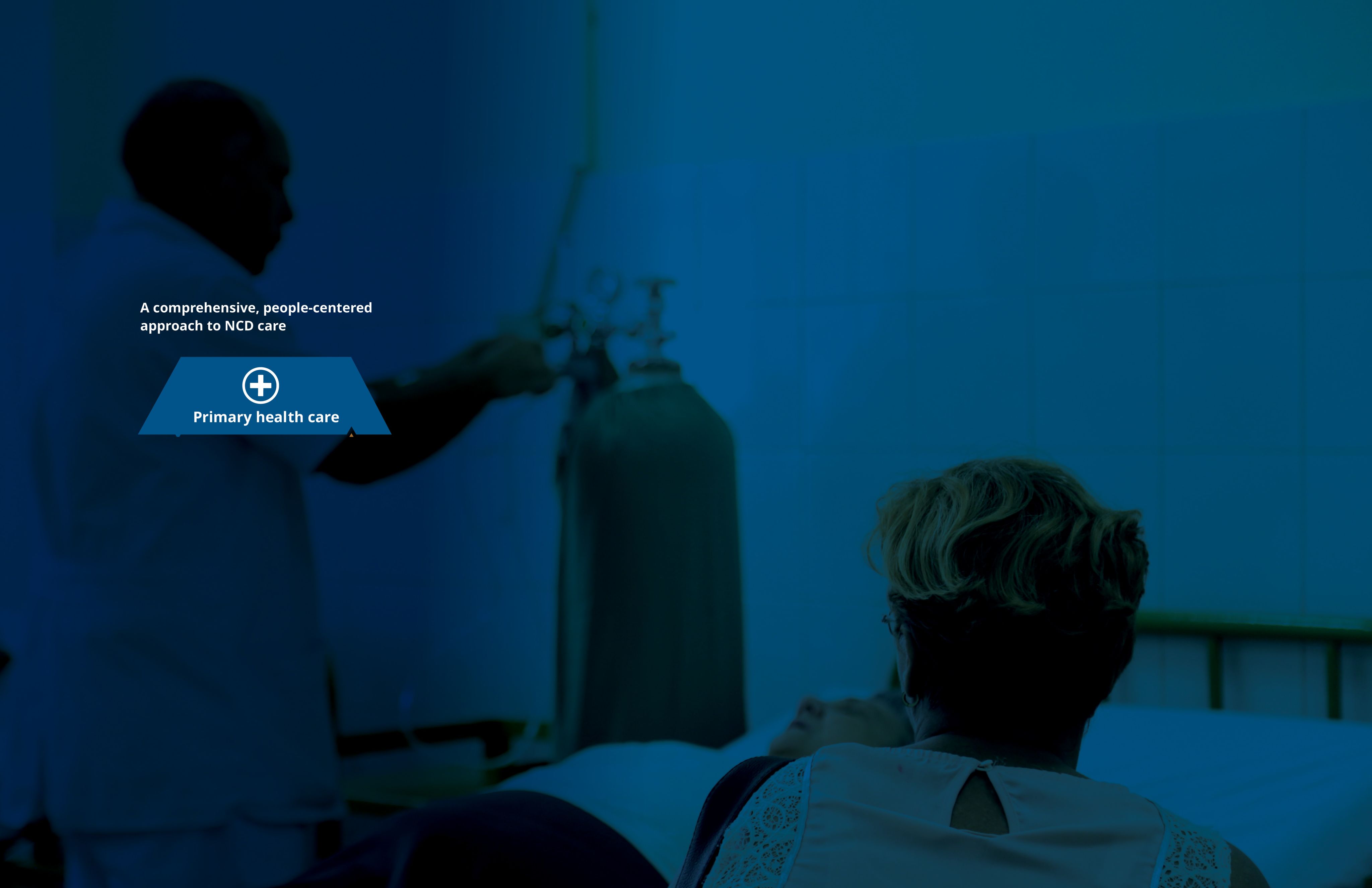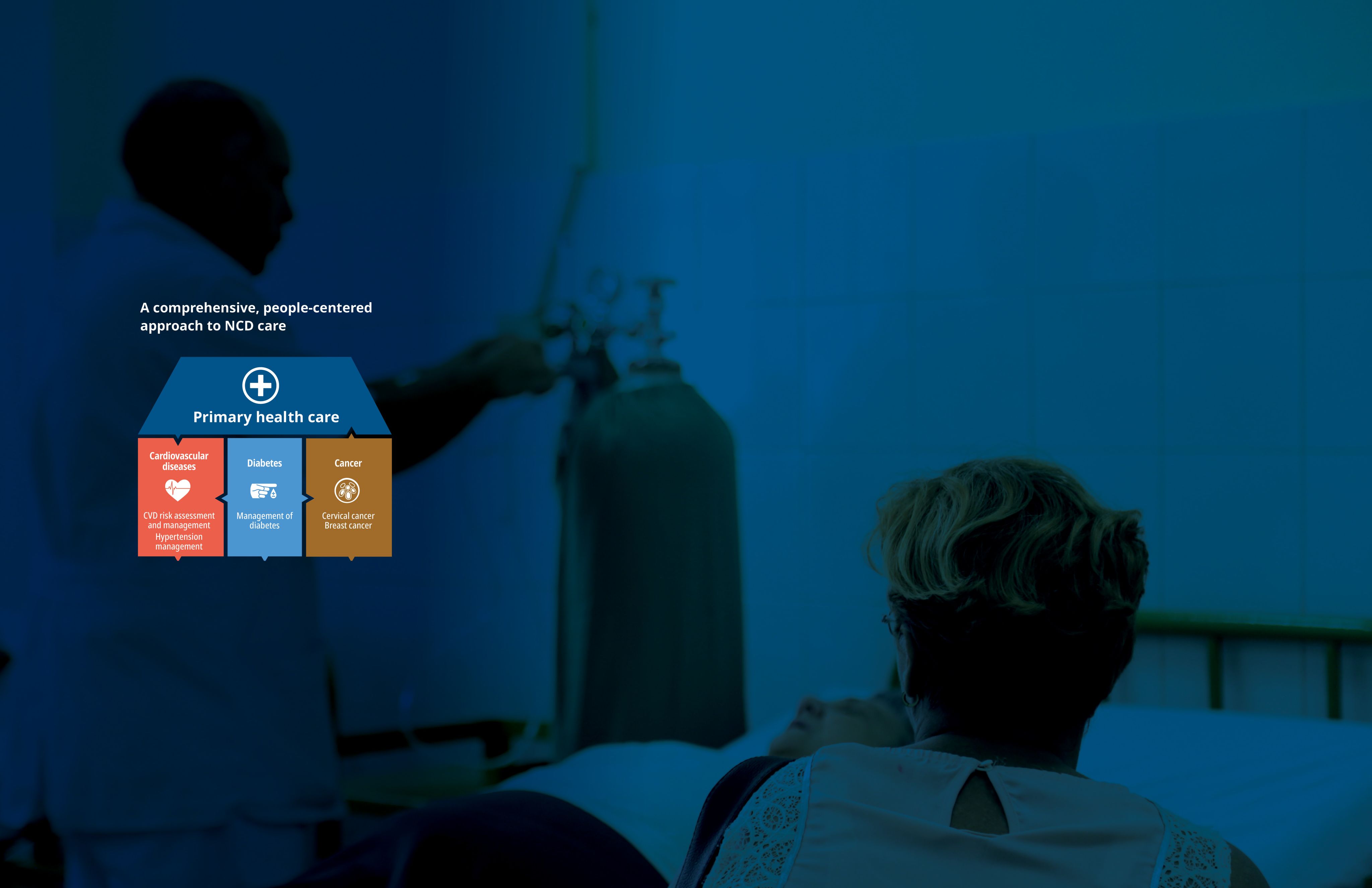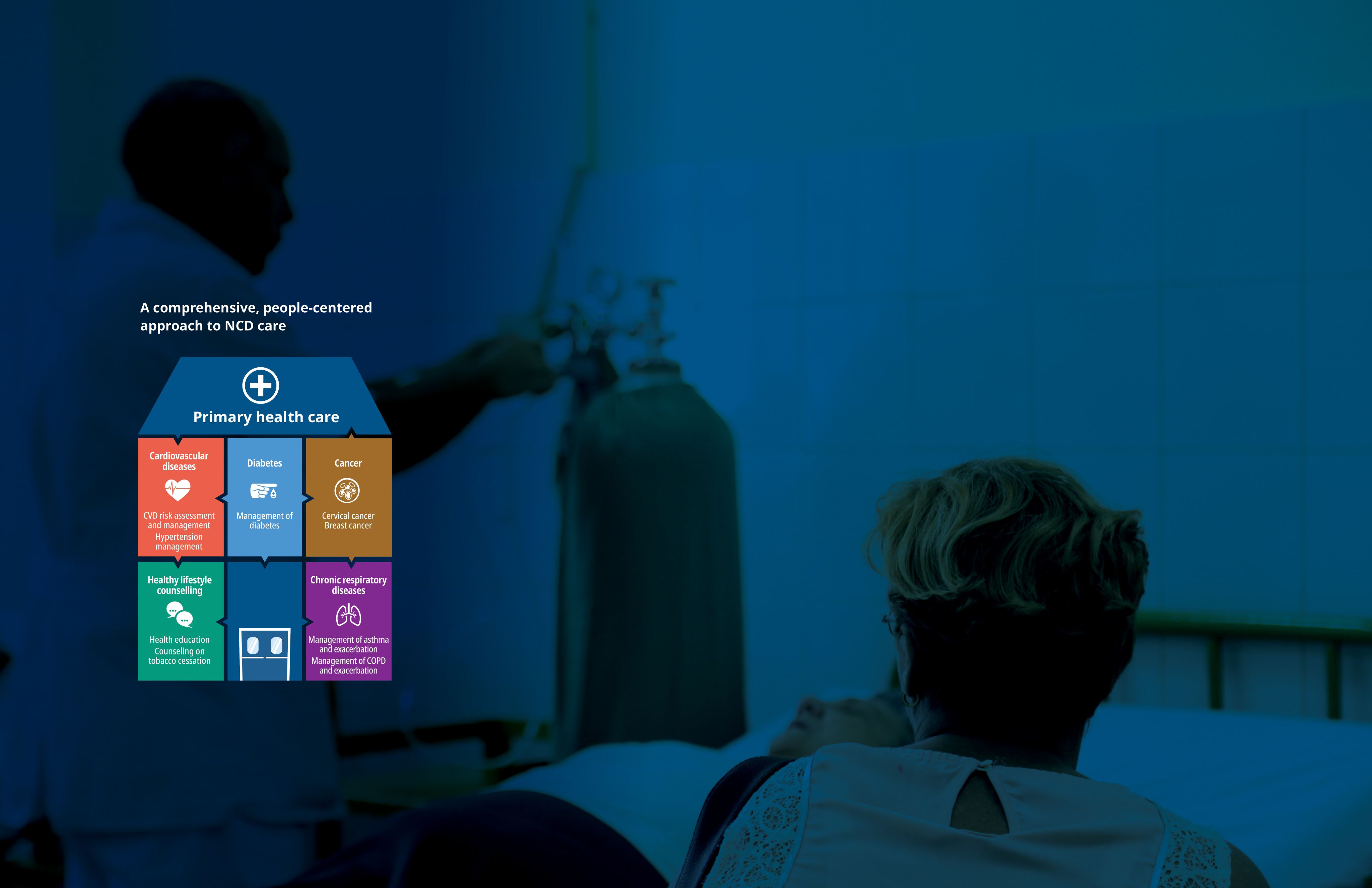Strengthening care for noncommunicable diseases in the Americas

Noncommunicable diseases are the leading causes of death in the Region of the Americas
Noncommunicable diseases (NCDs), such as cardiovascular diseases, cancer, respiratory diseases, and diabetes, accounted for 65% of lives lost in the Americas in 2021. At least 240 million adults in the Region live with at least one NCD, requiring access to continuous support, delivered through primary health care.
Successful implementation of NCD policies and interventions can result in significant cost savings, alleviating the economic burden on healthcare systems, individuals, and society, while effective NCD management at the level of primary health care reduces premature deaths and disabilities.
Strengthening integration of NCDs into primary health care represents a key milestone in a country’s health system response to the 2030 Agenda for Sustainable Development, with the aim of leaving no-one behind.
PAHO leads initiative to expand equitable access to NCD services
In 2023, the Pan American Health Organization (PAHO) launched the initiative Better Care for NCDs: Accelerating Actions in Primary Health Care to expand equitable access to integrated and comprehensive NCD services within primary health care in the Americas, from health promotion to prevention, screening, treatment, rehabilitation, and palliative care.
The initiative strengthens the capacity of health authorities to plan and implement comprehensive NCD services in primary health care, increases the capacity of primary care services to deliver comprehensive quality NCD screening, diagnosis, treatment, and follow-up, and strengthens data collection and monitoring of NCD diagnosis, treatment, and outcomes of care.




Key initiative actions
- Joint PAHO-country assessments of the health service needs and gaps, and country-specific plans to improve integration of NCD services, including the integration of telehealth services in primary health care.
- Outreach to underserved and remote populations to increase rates of NCD diagnosis and treatment, improve health literacy and health promotion through information and education, and foster healthcare seeking lifestyles.
- Evidence-based guidelines through adaptation of the World Health Organization’s package of essential noncommunicable disease interventions.
- Strengthening competencies and capacities of the primary healthcare workforce for NCD screening, diagnosis, and treatment, including development of community health worker capacity. This will involve the establishment of a comprehensive set of training courses through the PAHO Virtual Campus.
- Increasing availability, access, and quality of NCD essential medicines and diagnostic technologies, including increased utilization
of the PAHO Regional Revolving Funds.
- Improving health information systems
for NCDs.
A steadfast focus on reaching the underserved
As it stands, no country in the Region is on track to meet the World Health Organization’s nine global NCD targets by 2025. Only 20 out of 35 countries report having guidelines for the management of all four common NCDs (cardiovascular diseases, cancers, chronic respiratory diseases, and diabetes), and nine report offering drug therapy, including for diabetes control, and counseling for eligible individuals at high risk, to prevent heart attacks and strokes.
Therefore, PAHO encourages countries to adopt this initiative to scale up and accelerate integration of comprehensive NCD services in primary health care as one of the actions required to promote recovery in the post-pandemic era.
As part of the initiative, the PAHO Regional Revolving Funds will offer Member States an NCD bundle, to enable countries to access high-quality, affordable medicines to treat diabetes, cancer, cardiovascular diseases, and chronic respiratory diseases, as well as diagnostic tests and vital equipment such as blood glucose monitoring devices and blood pressure monitoring devices.
Read more about the Better Care for NCDs initiative here.
Expected results from the Better Care for NCDs initiative
● Improved individual decisions related to healthy lifestyle and self-management
● Improved control rates for hypertension, diabetes, and asthma
● Reduced rates of heart attack and stroke
● Reduced rates of complications from diabetes
● Increased coverage for cervical cancer screening and ablative treatment of precancerous lesions
● Increased rates of early detection of breast cancer